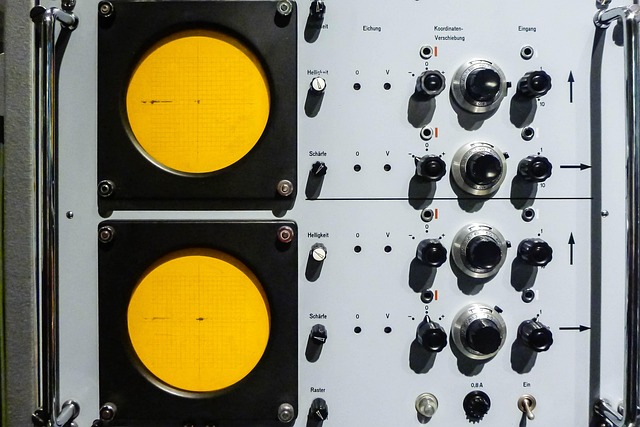Rodent control is critical for homeowners due to the rapid spread and damage caused by infestations. Understanding how rodents enter (gaps around pipes, doors, windows, foundations) and what attracts them (food sources, garbage) is essential. Early action and regular inspections prevent severe infestations. Key preventative measures include sealing entry points, maintaining cleanliness, and securing food storage. Effective control methods vary by species: rats prefer hidden locations, mice are versatile breeders, and squirrels cause structural damage. Eco-friendly methods like peppermint oil, natural repellents, and professional pest services deter rodents without toxic chemicals. Post-control, consistent cleaning, inspections, and maintenance prevent reinfestation. Balancing human health and ecological preservation through sustainable practices benefits both residents and the environment.
In the comfort of our homes, an invisible enemy can lurk—rodents. Understanding residential rodent infestations is key to effective rodent control. This comprehensive guide delves into the world of common types of rodents, their behaviors, and identifying subtle signs of their presence. We explore a range of preventative measures, from non-toxic methods to professional rodent control services. By implementing these strategies, you can safeguard your home, community, and environment from unwanted visitors.
Understanding Residential Rodent Infestations

Rodent control is a significant concern for homeowners, as infestations can quickly escalate and cause substantial damage. Understanding how rodents find their way into homes and what attracts them is the first step in effective residential rodent control. Common entry points include gaps around pipes, wires, doors, and windows, as well as cracks in foundations or walls. Rodents are also drawn to food sources, such as pet food, garbage, and even spilled household items.
Once inside, rodents reproduce rapidly, with female mice capable of producing up to 10 litters per year, each containing up to 10 offspring. This rapid growth can turn a minor infestation into a major problem within months. Regular inspections and prompt action are crucial in preventing and managing rodent infestations. Homeowners should seal entry points, maintain a clean environment, and store food securely to deter rodents and implement effective rodent control measures.
Common Types of Rodents and Their Behaviors

Rodents, a diverse group of mammals including rats, mice, and squirrels, are among the most common pests seeking shelter in residential areas. Understanding their behaviors is crucial for effective rodent control. Rats, known for their agility and adaptability, tend to live in hidden places, often forming complex nest structures. They are nocturnal creatures, preferring the cover of darkness to scavenge for food and navigate their surroundings. Mice, smaller in size, are equally resourceful. They breed rapidly and can squeeze into tiny crevices, making them hard to detect until they’ve established a significant population. Unlike rats, mice are often active during both day and night, searching for food sources and exploring new territories.
Squirrels, while not typically considered indoor pests, can pose problems when they invade residential spaces. These creatures are arboreal, spending most of their time in trees, but they will venture indoors, especially attics, seeking shelter or food. They are known for their strong, sharp teeth, which they use to gnaw on materials, potentially causing structural damage if not addressed promptly. Recognizing these behaviors is essential for implementing effective rodent control measures tailored to each species’ unique characteristics and habitats.
Identifying Signs of Rodent Activity

Rodent control is a crucial aspect of maintaining a healthy and safe living environment. Identifying signs of rodent activity early on can prevent infestations from becoming severe. Keep an eye out for distinctive clues, such as small holes in walls, floors, or furniture, chewed wires or insulation, and peculiar odors. Rodents also leave behind droppings, which can be visible to the naked eye and indicate their presence.
Additionally, you may notice unusual noises coming from walls or attics, particularly at night, as rodents are most active during this time. If you observe any of these signs, taking immediate action is essential. Prompt intervention can save you from a costly and extensive rodent problem, ensuring your peace of mind and the well-being of your home.
Preventative Measures for Effective Rodent Control

Preventative measures play a crucial role in effective rodent control, and implementing them is the first step towards a pest-free home. Regular maintenance and sanitation are key; rodents are attracted to food sources, so keeping your space clean and sealed off potential entry points can significantly deter them. This involves securing garbage bins with tight-fitting lids, wiping down surfaces regularly, and storing food in airtight containers.
Additionally, inspecting your home for any signs of damage or gaps where rodents might enter is essential. Sealing these areas with materials like steel wool or caulk will create a physical barrier, making it harder for rodents to gain access. These preventative actions, combined with professional pest control services, can be a game-changer in the battle against rodent intrusion.
Non-Toxic Rodent Control Methods

When it comes to residential rodent control, there are numerous non-toxic methods that homeowners can employ to keep their spaces pest-free. These environmentally friendly alternatives offer a safe and humane approach to managing rodent infestations. One effective strategy is maintaining a clean and clutter-free environment, as rodents are attracted to food sources and hiding spots. Regularly cleaning and sealing entry points like gaps in walls or floors can prevent their access.
Another popular non-toxic method involves the use of natural repellents. Peppermint oil, for instance, is known for its strong scent that deterred rats and mice. Setting out traps baited with these repellents or using diffusers with essential oils can be highly effective. Additionally, certain plants like peppermint, lavender, and catnip have natural properties that rodents find unpleasant, making them excellent organic deterrents.
Professional Pest Control Services: When to Hire

When dealing with rodent infestations, it’s crucial to consider professional pest control services for effective and long-lasting results. While DIY methods can be tempting for minor issues, rodents like mice and rats are adept at hiding and quickly reproduce, making them challenging to eliminate entirely on your own. Professional services offer specialized knowledge and tools designed specifically for rodent control, ensuring a thorough inspection, accurate identification of entry points, and the implementation of tailored solutions.
Hiring professionals is particularly recommended when faced with severe or persistent infestations, as well as in situations where the infestation has led to structural damage or health risks. These experts can also provide ongoing prevention strategies, ensuring your home remains rodent-free over time. Their expertise lies in safely and humanely removing rodents while addressing the root causes of the problem, ultimately saving you time, money, and potential headaches in the long run.
Post-Treatment Care and Maintenance Tips

After a thorough rodent control treatment, maintaining a pest-free environment is crucial for long-term success. Regular cleaning and sanitizing are essential to remove any remaining signs of infestation and prevent future attractions. Keep your home tidy, eliminating clutter where pests might hide, and ensure all food is stored in airtight containers.
Additionally, sealing entry points such as gaps around pipes, windows, or doors can deter rodents from re-entering. Regular inspections are vital; check for any signs of new damage or unusual activity. Promptly addressing any issues found will help maintain a rodent-free home. Remember, consistent care and maintenance are key to keeping these unwanted visitors at bay!
Community and Environmental Considerations

When addressing residential rodent control, it’s crucial to consider the broader community and environmental implications. Effective rodent control strategies must balance human health and safety with ecological preservation. Using toxic chemicals can harm non-target species, contaminate soil and water sources, and contribute to wider ecosystem disruptions.
Instead, prioritizing non-toxic, eco-friendly methods like sanitation improvements, structural repairs, and trapping offers a more sustainable approach. These community-based initiatives not only control rodent populations but also foster a healthier living environment for everyone involved while minimizing potential environmental damage. Rodent control should be a collaborative effort that considers the well-being of both residents and the surrounding ecosystem.
